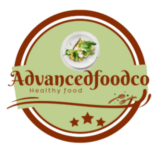“Organic Food”
Before diving into the practicalities of finding organic food near you, let’s first clarify what “organic” means in the context of food.
Organic food is produced using farming practices that avoid synthetic pesticides, herbicides,
genetically modified organisms (GMOs), and artificial additives.
Instead, it relies on natural and sustainable methods that prioritize soil health, biodiversity, and environmental stewardship.
Stringent Standards and Certifications
The term “organic” isn’t just a marketing gimmick;
strict standards and certifications back it.
The most recognized certification in the United States is the USDA Organic label. Products bearing this label have undergone rigorous testing to meet specific organic requirements.
These standards encompass everything from soil quality and crop rotation to animal welfare.
Health Benefits of Organic Food
Why choose organic?
One compelling reason is the health benefits it offers.
Organic food is free from synthetic chemicals, making it a safer choice for you and your family.
Studies have shown that consuming organic products can reduce your exposure to harmful pesticides, which have been linked to a range of health issues, including cancer, neurological disorders, and hormonal imbalances.
Environmental Stewardship
Beyond personal health, choosing organic food also has a significant positive impact on the environment.
Organic farming practices prioritize sustainable land use, reduce pollution, and conserve water resources.
By avoiding synthetic chemicals, organic farming helps maintain soil health and promotes biodiversity, making it a more eco-friendly choice.
The Case for Choosing Organic
Health Advantages
One of the most compelling reasons to choose organic food is the health benefits it offers.
By eliminating synthetic pesticides and herbicides, organic farming reduces your exposure to potentially harmful chemicals.
This can lead to a lower risk of pesticide-related health issues and a diet that’s cleaner and more wholesome.
Environmental Benefits
Every time you choose organic, you’re making a small but significant contribution to environmental conservation.
Organic farming practices minimize soil erosion, reduce pollution of air and water, and promote the sustainable use of natural resources.
Additionally, they eliminate the need for chemical fertilizers, which can harm ecosystems.
Support for Local Farmers
Buying organic food also means supporting local farmers who prioritize sustainable agriculture.
When you purchase organic products from nearby farms, you’re contributing to the local economy, helping small-scale farmers thrive, and reducing the carbon footprint associated with long-distance food transportation.
Superior Taste and Quality
Many people find that organic food simply tastes better.
Organic crops are grown without the aid of synthetic growth enhancers, resulting in produce that’s naturally more flavorful and nutrient-rich.
If you’ve ever savored the sweet juiciness of an organic tomato or the rich depth of flavor in organic coffee, you’ll know what we mean.
Where to Find Organic Food Near You
Exploring Local Farmers’ Markets
Farmers’ markets are treasure troves of organic delights.
Here, you can connect directly with local farmers and artisans, discovering fresh, seasonal, and organic produce.
Each visit to a farmers’ market is a sensory adventure, filled with the vibrant colors and aromas of organic fruits, vegetables, dairy products, and more.
To fully capitalize on your visit to the farmers’ market
Strike up conversations with farmers to learn about their organic practices.
Embrace seasonal eating, enjoying fruits and vegetables at their peak freshness.
Listen to stories from fellow shoppers who have uncovered hidden organic gems.
Embracing Community Supported Agriculture (CSA)
Community Supported Agriculture (CSA) programs offer a unique opportunity to establish a direct relationship with local farms.
By subscribing to a CSA, you become a shareholder in the farm’s produce and receive regular deliveries of fresh, organic goods.
It’s a win-win arrangement that supports local agriculture while ensuring a steady supply of healthy food for your table.
When joining a CSA program:
Explore the benefits of direct connections with local farms.
Discover the joy of receiving fresh, organic produce regularly.
Read testimonials from individuals who have had positive CSA experiences.
The Role of Health Food Stores
Health food stores are hubs for organic products.
These specialty stores carry a wide range of organic offerings, including fresh produce, pantry staples, snacks, and more.
When you step into a health food store, you enter a world where organic options abound, catering to various dietary preferences and needs.
Tips for navigating health food stores:
Learn how to read labels to identify organic products.
Select the best organic options for your specific dietary requirements.
Explore profiles of well-known health food store chains committed to offering organic choices.
Harnessing Online Directories and Apps
The digital age has made finding organic food near you easier than ever.
Online directories and smartphone apps dedicated to organic sourcing provide a convenient way to locate organic products and farmers’ markets in your area.
These tools offer maps, reviews, and even community ratings, making your organic food hunt a breeze.
To use online directories and apps effectively:
Familiarize yourself with these digital resources.
Follow step-by-step instructions for efficient searching.
Consider user testimonials that highlight the convenience of these tools.
Savoring Organic Dining Experiences
The organic movement has extended to restaurants as well.
Many eateries now prioritize sourcing organic ingredients for their dishes.
When dining out, you can make a conscious choice to support restaurants that share your commitment to organic, sustainable food.
Tips for dining out organically:
Inquire about ingredient sourcing when you dine out.
Discover and patronize restaurants renowned for their organic offerings.
Enjoy the unique flavors and health benefits of organic meals.
Joining Organic Food Communities
Social media groups and online forums dedicated to organic food enthusiasts provide a space for like-minded individuals to connect and share valuable information.
These communities can be treasure troves of organic recommendations, tips, and insights into local sources of organic food.
When exploring organic food communities:
Discover the advantages of connecting with fellow organic enthusiasts.
Read personal anecdotes from community members who have found valuable recommendations.
Learn how to join and actively participate in these online organic food communities.
Top Tips for Smart Organic Shopping
Verify Organic Certifications and Labels
When shopping for organic products, always look for the USDA Organic label or other local organic certifications.
These labels indicate that the product has met stringent organic standards, assuring you of its quality and authenticity.
Embrace Seasonal Eating
To maximize freshness and affordability, align your grocery list with seasonal availability.
Seasonal fruits and vegetables are often more affordable and tastier than their out-of-season counterparts.
Decipher Product Labels
Become adept at reading product labels to make informed choices.
Labels provide essential information about ingredients, nutritional value, and organic certification.
Buy in Bulk
Consider purchasing non-perishable organic items in bulk.
Not only does this help you save money over time, but it also contributes to a reduction in packaging waste.
Build Relationships with Local Farmers
ORGANIC FOOD Get to know your local farmers by visiting farmers’ markets or participating in CSA programs.
Building these connections can lead to a deeper understanding of your food’s origins and how it’s grown.
Conclusion
In your quest CLICK HERE for more food blogs
Share it:
- Click to share on Facebook (Opens in new window) Facebook
- Click to share on X (Opens in new window) X
- Click to email a link to a friend (Opens in new window) Email
- Click to share on LinkedIn (Opens in new window) LinkedIn
- Click to share on Reddit (Opens in new window) Reddit
- Click to share on X (Opens in new window) X
- Click to share on Tumblr (Opens in new window) Tumblr
- Click to share on Pinterest (Opens in new window) Pinterest
- Click to share on Telegram (Opens in new window) Telegram
- Click to share on Threads (Opens in new window) Threads
- Click to share on WhatsApp (Opens in new window) WhatsApp
- Click to share on Mastodon (Opens in new window) Mastodon
- Click to share on Nextdoor (Opens in new window) Nextdoor
- Click to share on Bluesky (Opens in new window) Bluesky
- Click to print (Opens in new window) Print
Related
Discover more from Advance food co
Subscribe to get the latest posts sent to your email.


